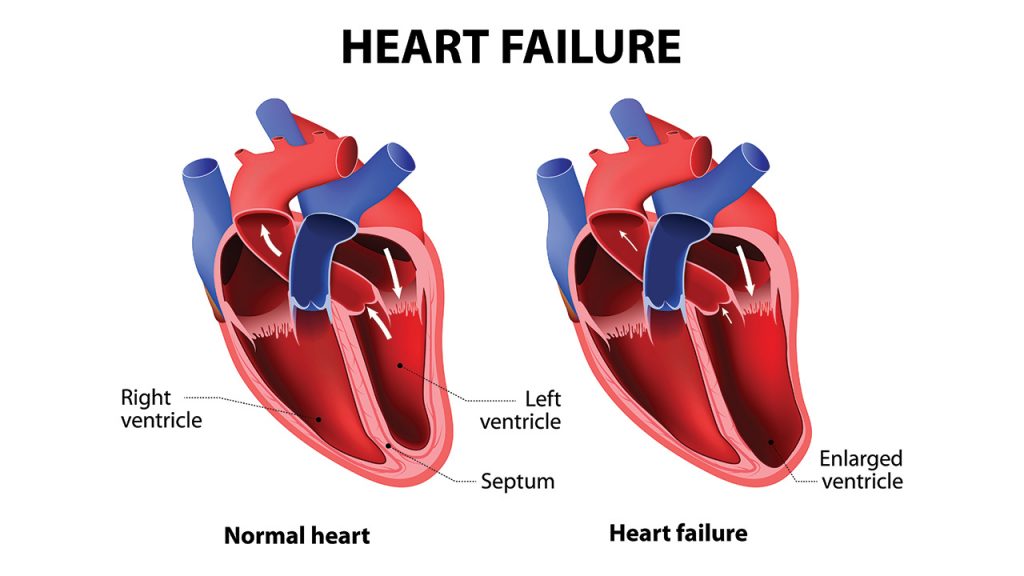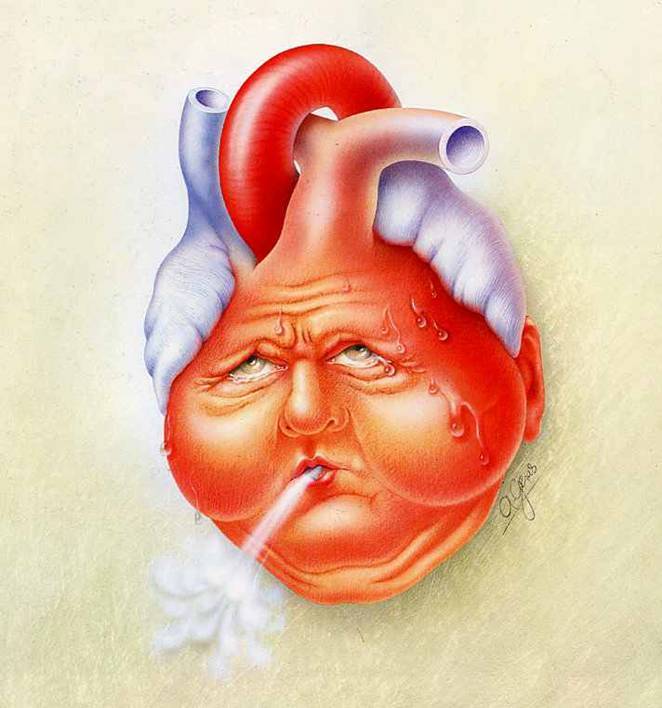Heart failure is a frightening term that does not necessarily mean the heart has stopped altogether but that it is not pumping blood with enough force to meet the body’s needs. The heart is struggling to do its job efficiently and this is a condition that can occur over time, affecting one or both sides of the heart. Should symptoms of heart failure occur suddenly, this is known as acute heart failure.
Should the right side be affected, this means the heart isn’t able to pump enough blood to pick up oxygen from the lungs. Symptoms of right side heart failure include fluid building up in the feet and ankles, legs and liver.

If it is the left side of the heart that’s affected, the heart is unable to pump oxygen through the blood to the rest of the body. Symptoms of left side heart failure include: fatigue, irregular or rapid pulse, shortness of breath or decreased urine production.
Other symptoms of congestive heart failure include: general fatigue, swelling in feet and ankles, confusion or inability to think clearly.
Congestive heart failure will eventually lead to problems in other areas of the body. Less blood is being circulated and blood starts to back up. This increases the pressure in the blood vessels and fluid starts to collect in the lungs. Breathing becomes more difficult. The kidneys will struggle to remove all the excess fluid from the body. The body is becoming congested with fluid, hence the term ‘congestive’ heart failure.

Over 5 million people in the United States have heart failure and the condition can affect people of all ages, young and old. It is more common in the elderly and can be caused by other conditions such as high blood pressure, a past heart attack that has caused damage to the heart muscle, heart valve disease, diabetes and drinking too much alcohol. It is one of the most common reasons elderly people are admitted to hospital.
Treatments will depend on the type of heart failure. You should seek medical advice if you suffer from shortness of breath, chest pain or a heavy feeling in your chest, notice swelling in the legs that has never been there before or if you gain weight suddenly in a short space of time.
It can take years for heart failure to develop. Those who are at risk can make lifestyle changes to prevent this from happening. To keep your heart healthy, you might:

~ avoid too much salt in your diet as salty foods can cause your body to retain water
~ avoid drinking too much alcohol
~ exercise regularly
~ get plenty sleep and rest
~ keep your blood pressure under control
~ quit smoking … no matter what your age it is never too late to stop smoking!
~ eat a healthy and balanced diet
Herbal and natural treatments for heart and circulation problems include:

Garlic: Boil two pieces of garlic in milk and take daily
Hawthorn: helps to improve the blood supply and strengthen the heart’s muscles
Honey and Lemon: Mix a tablespoon of honey with the juice of half a lemon in a glass of water and take every day to help your heart
Lemon: helps prevent the build-up of cholesterol in the blood
Motherwort: helps to relax a racing pulse
Parsley: Drink Parsley tea regularly
Apples and Grapefruit: grapefruit helps tone up the heart and apples also help stimulate the heart muscles
It is important that those with diabetes control their blood pressure, blood sugar and cholesterol levels in order to minimise the risk of heart disease.
Warning: Seek professional advice if you are pregnant or breast feeding and considering herbal remedies for your heart.


















